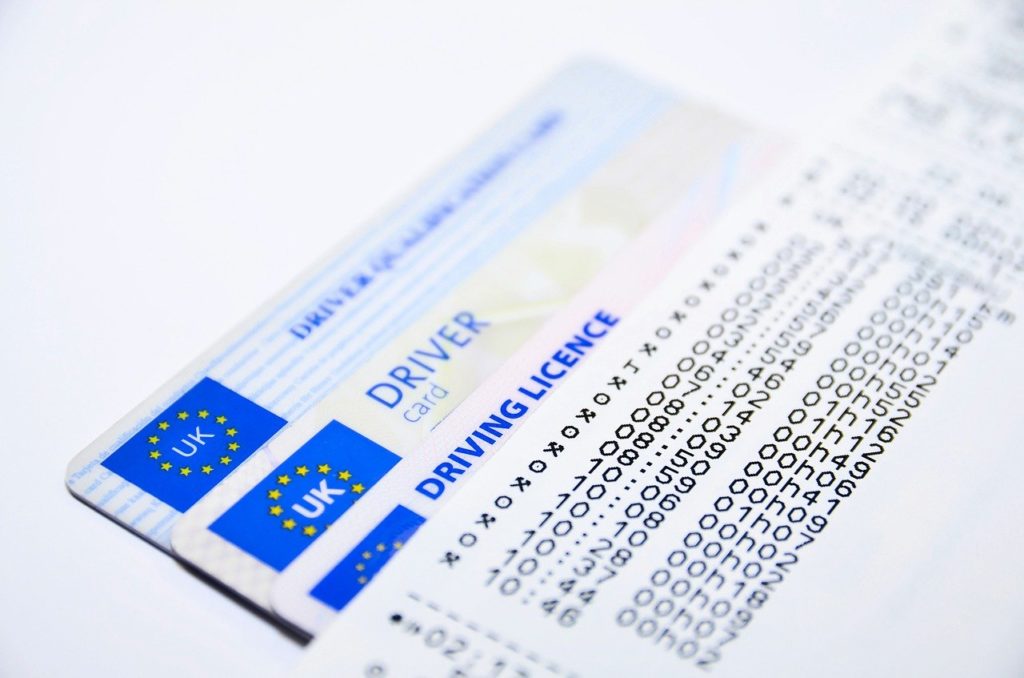If you get arrested for drunken driving, let’s just say that a series of events awaits you, all of which will cost you money and loads of it. However, don’t forget the spirit behind why DUI and DWI laws exist.
They protect both the driver, as well as other motorists on the road, by deterring drivers from getting behind the wheel when they are in an impaired state. According to statistics from the US Department of Transportation, almost 30 people lose their lives every day in drunk-driving-related crashes. That’s one person every 50 minutes.
With such figures, it’s not surprising why DUI and DWI offenders risk facing stiff penalties if convicted. If you are ever arrested for a DUI, you need to retain the services of the best DUI lawyer to represent you. The same applies if you are fighting a DWI charge.
But what do DUI / DWI lawyers do, and do you need one? This guide seeks to answer this question in depth.
What Is the Difference Between a DUI and DWI?
DUI is an acronym that’s short for “Driving Under the Influence.” DWI, on the other hand, stands for “Driving While Intoxicated.” DUI and DWI can sometimes refer to the same offense or can have different meanings. It all depends on the state in which you were pulled over.
However, both terms describe impaired or drunken driving and are not just limited to alcohol and recreational drugs. If prescription drugs impair your ability to operate a vehicle and you get pulled over, you would still be charged with a DUI/DWI.
In states that use both terms, more often than not, one of them will refer to alcohol-related impairment while the other will refer to drug- or substance-related impairment. The meaning of each one is likely to reverse from state to state.
For instance, in some states, DWI refers to driving while intoxicated with a blood alcohol content that is above the legal limit, whereas a DUI charge refers to the driver being under the influence of drugs.
In other states, DWI refers to “Driving While Impaired” by drugs, or other intoxicating substances, whereas DUI refers to “Driving Under the Influence” of alcohol. So, it is always best to check the definitions of the two terms based on the state you reside in.
DUI Misdemeanor vs. Felony Charges
Depending on the circumstances surrounding your arrest, a DUI can either be a misdemeanor or a felony. The potential penalties for the two categories of offenses differ significantly.
A misdemeanor crime is considered to be a less serious offense than a felony. If you are charged with a felony DUI, you could be looking at a year or more in prison in addition to monetary fines and other penalties.
A misdemeanor DUI, on the other hand, may see you spend up to a maximum of one year in jail. So you need the best DUI lawyers in your corner to help you fight those charges.
The circumstances that differentiate a misdemeanor crime from a felony vary from state to state. This essentially means a driver with a DUI misdemeanor charge in one state may very well have been facing a felony charge if the same offense occurred in a different state.
Regardless of this, most states share common factors that can turn a DUI / DWI misdemeanor charge into a felony charge. These factors are referred to as aggravating circumstances. Some of these are detailed below:
Blood Alcohol Concentration (BAC)
The level of intoxication of the driver can upgrade what would have otherwise been a misdemeanor charge to a felony DUI. This is determined by the Blood Alcohol Concentration (BAC).

If someone drinks excessively and then gets behind the wheel, a police officer will often check to see whether their BAC is above the legal limit. Most states set the limit at 0.08 percent. This is the minimum blood alcohol level an individual must have before they can be charged with a DUI.
If you were pulled over and found to have a BAC that’s significantly higher than the legal limit, say 0.16 percent or more, then you’ll likely be charged with a felony DUI. That would be the ideal time to call a DUI lawyer since you could be looking at some pretty stiff penalties if you decide to go it alone.
Accident That Results in Injury
It’s one thing to be pulled over by the cops on suspicion that you are driving while intoxicated, but it’s another to be in an accident that results in harm or injury, which can be directly attributed to alcohol-, drug-, or substance-related impaired driving.

For instance, if you got into an accident while driving with a BAC that was above the legal limit, you might be charged with a misdemeanor DWI. But, if someone was injured or killed in the process, then the misdemeanor charge would be elevated to a felony.
If the intoxicated driver, their passengers, or any other road users who were present at the time of the crash suffer bodily harm or injury, these all constitute aggravating circumstances that are grounds for a felony charge. Such incidences require the specialized expertise of the best DUI accident lawyer.
Previous DUI / DWI Offences
If you are a first-time DWI offender with no aggravating factors surrounding your arrest, you’ll likely be charged with a misdemeanor offense. However, if you are a repeat offender with previous DWI violations and/or convictions within a prescribed time limit, then you’ll likely be facing a felony charge the next time you’re pulled over for drunk driving.
In some states, for instance, if a driver has previously been convicted at least three or more times on DUI charges within 7 years, then the next charge will likely be a felony DUI even if the factors of the arrest would have otherwise rendered it a misdemeanor.
Having a Child in the Car at the Time of the Arrest
If you were pulled over and found to be driving with a BAC that was above the legal limit or under the influence of drugs and had other people in the car with you, there’s a good chance that you’ll be charged with a felony DWI as opposed to a misdemeanor. In some states, however, if one or more of the passengers were children, then you’ll have a felony charge on your hands. A child is considered to be anyone under the age of 16, although the threshold may vary from one state to the next.
Having a Suspended Driver’s License

Regardless of the aggravating circumstances (or lack thereof) surrounding a DWI arrest, if you are found to be driving with a suspended license, a misdemeanor would automatically be elevated to a felony charge. Having a suspended license technically means that you are not permitted to drive in the eyes of the law.
What a DWI Lawyer Can Do for You
Any time you’re pulled over for driving while under the influence of alcohol, drugs or any other intoxicating substance that will likely cause impairment, you’ll probably have a misdemeanor or felony charge coming your way. While you need good legal representation in both instances, being charged with a felony DUI is very serious.
Without a good lawyer to help you fight those charges, you could be staring at a lengthy prison sentence if you’re convicted. A DUI lawyer cost averages at around $1,900. However, it all depends on whether you accept a plea bargain or go all the way to trial.
DUI penalties vary depending on the state you’re in, and courts can exercise their discretion in determining how to punish offenders. Here are some of the penalties a DWI lawyer can help you avoid or, at the very least, minimize if you’re convicted on a DUI / DWI charge.
Incarceration
It is quite common for people convicted of a DUI to serve some time behind bars. If you’re guilty of a misdemeanor, the charge you see you spend up to one year in jail. A felony DUI, on the other hand, could see you serve a year or more in prison, depending on the aggravating circumstances surrounding your case.
The best thing to do is to go online and search for the “best DUI lawyer near me.” That way, you can get a good attorney with a great track-record to try and reduce the charge to a misdemeanor offense or at the very least, reduce the duration of prison time you have to serve.
Monetary Fines
Either way, you slice it, if you are charged with a DWI, there will usually be some monetary consequences attached to the punishment for the crime, in addition to incarceration. The amounts vary widely depending on the state you’re in, whether you are a repeat offender, and whether you are facing a misdemeanor or felony charge. Amounts range anywhere between a couple of hundred dollars to $10,000 for misdemeanor convictions and substantially more for felony DWIs.
Probation Sentence
In some felony DWI cases, a court can impose a probation sentence on the offender instead of prison time or fines. In other cases, the court can impose a probation sentence in addition to prison time or fines. It is entirely at the court’s discretion.

Individuals in such circumstances have restricted liberties. This means that they have to comply with several conditions and restrictions that the court imposes. Some of these include:
- Not committing DWIs or other criminal offenses anymore
- Not being in locations where alcohol is present
- Submitting to random drug and alcohol testing at the discretion of the probation officer
- Maintaining steady employment
Driver’s License Suspension
The reality is, if you are arrested on a DUI, then an administrative license suspension from the Department of Motor Vehicles (DMV) will likely follow thereafter even if you are never convicted in a criminal court. The suspension period typically ranges anywhere between three months and several years and depends on the circumstances surrounding your arrest.
If you are convicted, then a judge is also likely to impose a license suspension lasting more or less the same duration. However, in some states, a DWI attorney can help you apply for a “restricted” license to allow you to drive to and from specified places. The most common are school and work.
DUI Expungement
DUI expungement is the process of erasing DUI-related arrest and conviction records. Having a criminal record can get in the way of you:
- Finding lasting employment
- Getting loans or grants for higher education
- Getting competitive interest rates on loans and insurance premiums
- Becoming a foster or adoptive parent to a child
- Renting a property
- Getting licensing and certification from professional bodies
- … any many more
How Long Does a DWI Stay on Your Record?
If you’re wondering, “How long does a DUI stay on your record?” well, it depends. In many states, a DUI conviction remains on your record for at least 10 years. Florida, for instance, keeps it on for 75 years and doesn’t offer the option of expunging it either. So, you’re pretty much stuck with it on your license for the rest of your life.
If you’re not in the sunshine state and want to know how to get a record expunged, the best expungement lawyers can help you get the ball rolling. But there are several hoops you’ll need to jump through before it can happen.
For instance, some states will agree to expunge a DUI conviction from your record based on the severity of the sentence handed down and not on the nature of the charge itself. So, if you served a deferred or probationary sentence and fulfilled the conditions stipulated, then you can get your record expunged.
However, if you violate any of the terms such as not paying the mandatory fines, then the court might refuse to expunge a DUI conviction from your record. It ultimately depends on several factors, and the process could take a long time. But, it is not impossible to expunge a record.
Don’t Take Any Chances – Get the Best DUI Lawyer Help
Getting arrested for a DUI / DWI is a very serious offense with hefty implications on your finances and liberty. If you ever find yourself in such a predicament and don’t know any DUI attorneys that you can call, simply go online and search for “DWI lawyers near me” to get the best possible outcome for your present situation. Don’t take any chances.
If you have more legal questions, you can also chat now with a Laws101.com attorney, where you’ll be instantly connected to a lawyer who can give you legal guidance on your specific case or question.
